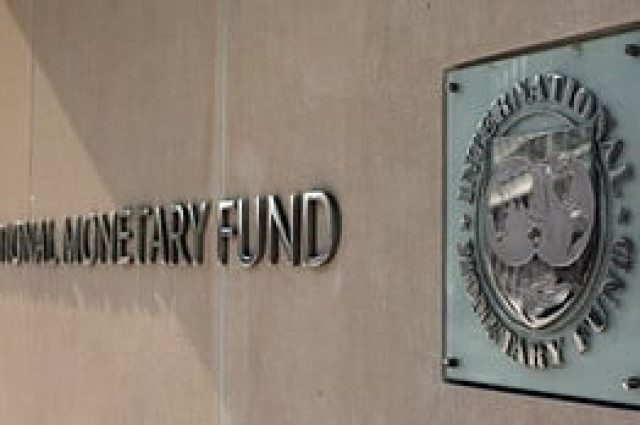Procurement costs Rs 542 billion. amid disputes over price, storage and provincial share
ISLAMABAD:
The International Monetary Fund (IMF) has once again allowed Pakistan to buy wheat to replenish its depletion reserves, while leaving it to the government to determine the strategic stock level and continue with plans to buy 6.2 million tonnes this year, an aide to the prime minister said on Monday.
Ahmed Umair, the Prime Minister’s Coordinator for Agriculture, clarified that the officially announced price of Rs3,500 per 40 kg is not a fixed support price, but an indicative rate linked to international market trends and subject to revision.
A day earlier, the Prime Minister’s Office had stated that the federal and provincial governments would jointly procure 6.2 million tonnes of wheat at Rs 3,500. Umair said the IMF had agreed to allow these purchases to replenish the country’s wheat reserves.
Last September, the IMF had stopped the federal and provincial governments from intervening in commodity markets. The ban on procurement by all governments led to a fall in wheat prices, falling as low as Rs 2,200. per 40 kg from the peak of around Rs 5,500.
Responding to a question on whether the decision to procure 6.2 million tonnes of wheat requiring Rs542 billion would qualify as a “strategic reserve”, Umair said it was the country’s discretion to determine its national strategic reserve levels.
The alleged agreement of the IMF to buy the commodity could save the program 7 billion dollars, as the IMF had called the commodity market reforms as one of the main successes of the year-and-a-half-old program.
“The authorities are planning reforms to reduce government intervention in commodity markets to promote a productive, diversified and internationally competitive agricultural sector that meets food security needs,” IMF chief of mission in Pakistan Iva Petrova said last week while announcing the agreement on staff levels.
The IMF had banned wheat procurement operations to stop market distortions and ease pressure on provincial budgets. IMF resident representative Mahir Binici did not respond to a request for comment on Monday.
The government’s decision came weeks before the IMF board is to consider Pakistan’s request for the completion of the second review of the $7 billion bailout package and the first review of the $1.4 billion climate facility.
After a meeting with provincial chief ministers, the Prime Minister’s Office announced that the government had approved a new wheat policy 2025-26 at a high-level meeting chaired by Prime Minister Shehbaz Sharif.
The Prime Minister announced that the federal and provincial governments will procure 6.2 million tonnes of strategic wheat reserves for the 2025-2026 season. The purchase will be at Rs3,500 per 40 kg, in line with international wheat import prices, according to the Prime Minister’s Office.
PM’s meeting
Sources said there was consensus among the federal and provincial governments to procure the wheat and support the farmers. However, there was disagreement over the price discovery and the Prime Minister referred the matter to Deputy Prime Minister Ishaq Dar to reach an agreement with the Sindh government.
The Sindh government had proposed Rs4,000 per 40 kg price at the meeting, which the federal government did not agree to. It was decided that the local wheat price will not be lower or higher than the international market to avoid any distortion.
Rs3,500 per 40 kg is a guide price and reflects today’s international market price, including transportation costs, which shows that the new policy does not favor either farmers or consumers, Ahmed Umair said. The agriculture coordinator said the pricing methodology had been shared with the IMF, which also endorsed it.
However, Sindh Agriculture Minister Muhammad Bux Mahar has demanded that the federal government fix the support price for wheat at Rs 4,200. per 40 kg. He emphasized that the Pakistan People’s Party Central Executive Committee (PPP-CEC) had also made the same demand just a day earlier.
Wheat measure
According to the decision, the federal government will procure 1.5 million tonnes of wheat through the private sector, including 500,000 tonnes to meet the needs of special areas. Punjab will procure 2.5 million tonnes, Sindh 1 million tonnes, Khyber-Pakhtunkhwa 750,000 tonnes and Balochistan 500,000 tonnes.
The two small provinces will also buy wheat from Punjab and Sindh. The estimated storage cost of the 6.2 million tonnes of wheat for a year is Rs.125 billion, the sources said. Umair said the private sector will purchase and store the wheat on behalf of the federal government following the decision to abolish the Pakistan Agriculture Storage and Services Corporation (PASSCO).
However, the sources said the Sindh government will procure its entire 1 million tonnes of wheat without involving the private sector.
Where the private sector will be involved, it will be financially compensated by the respective government due to procurement services, storage services and financial costs paid by these operators from the amounts to be used for the procurement of wheat. The government will issue licenses and only licensees will be allowed to offer procurement services, the sources said.
The original plan was that from next year the government would completely end restrictions on the import and export of wheat to give farmers a level playing field. But instead of deregulating the market, the government has reversed the old decision, which had also caused huge financial losses.
According to the IMF’s first audit report, Pakistan had assured the global lender that significant progress had been made towards a new framework for the wheat sector. It had also assured the IMF to refrain from wheat procurement operations and billed price reductions as “major benefits” for consumers that also curbed food inflation.
The IMF had also been told that the provinces paid most of the legacy debt related to commodity operations. The IMF had urged Pakistan to expand its efforts to other commodities, including by reviewing relevant legislation and empowering competition authorities, to enable a resilient and competitive agricultural sector that also serves consumer needs.



